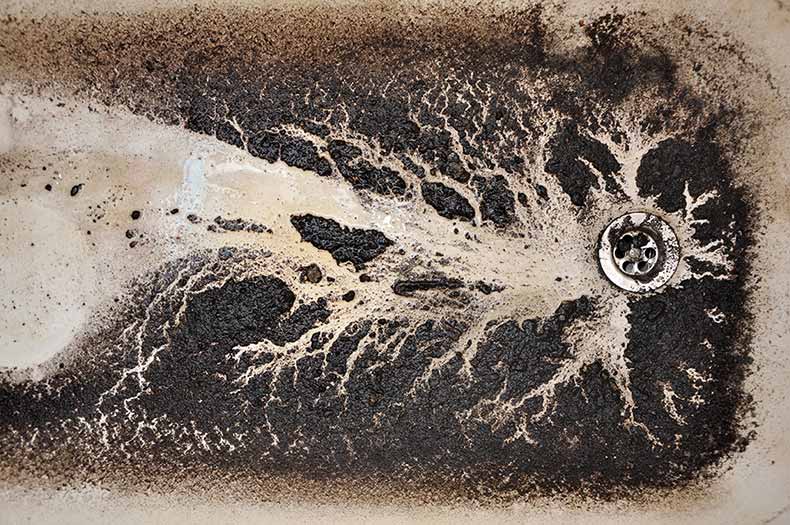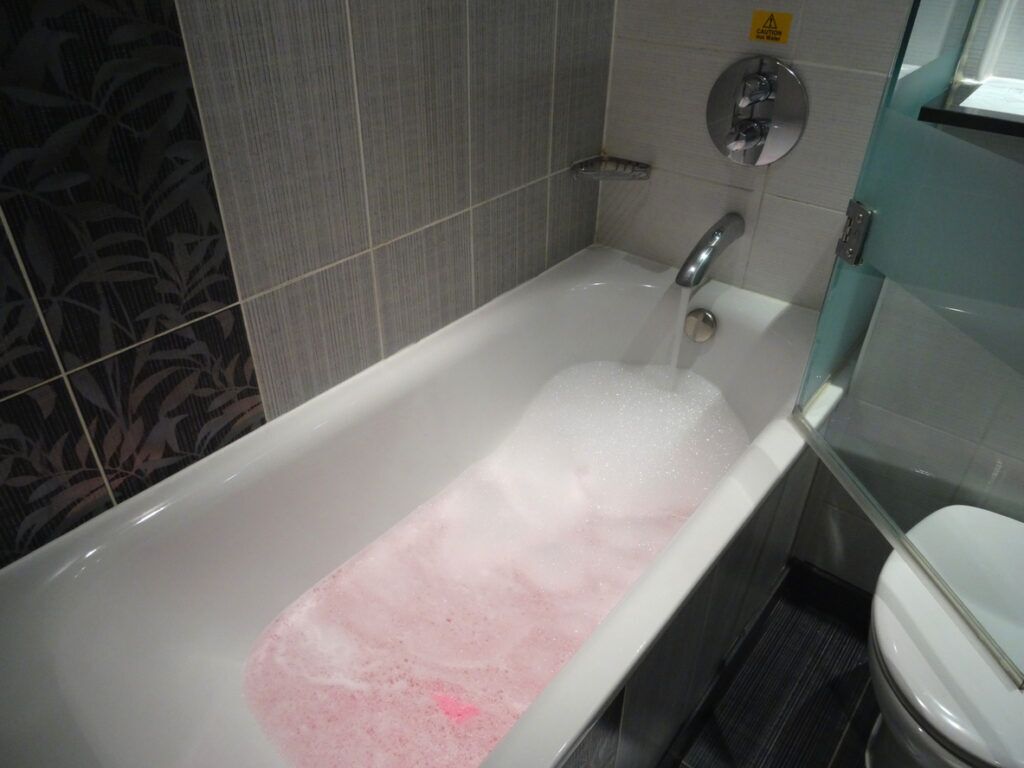Top Reasons Behind Sewage Backflow in the Bathtub
Top Reasons Behind Sewage Backflow in the Bathtub
Blog Article
What're your concepts about Why sewage is coming up through your bathtub?

Sewage backup in the tub can be a stressful and unhygienic issue for any house owner. Not just is it bothersome, however it additionally poses serious health and wellness risks and shows underlying issues with the plumbing system. Recognizing why sewage is turning up with the tub is important for taking proper action to attend to the trouble properly.
Introduction to the Concern
Understanding the Trouble
When sewer starts backing up right into the tub, it's a clear indicator of a trouble with the drainage system. The wastewater that should be flowing far from your home is rather finding its way back right into your home, which can result in significant damage and health hazards.
Possible Causes
A number of variables can add to sewage back-up in the bathtub. From clogs in the sewer line to issues with the plumbing infrastructure, recognizing the origin is necessary for locating a remedy.
Common Reasons for Sewage Back-up
Blockages in the Drain Line
One of the most typical sources of sewer back-up is a blockage in the sewer line. This can take place because of the buildup of particles, oil, or foreign things in the pipelines, stopping proper circulation and triggering sewage to back up into your bathtub.
Tree Origin Intrusion
Tree origins seeking moisture and nutrients can penetrate sewage system lines via small cracks or joints. Over time, these roots can expand and increase, creating significant damage to the pipes and leading to sewage backup problems.
Aging Infrastructure
Older homes might have outdated plumbing systems that are a lot more prone to corrosion, fractures, and degeneration. As pipelines age, they come to be a lot more prone to leaks and obstructions, boosting the chance of sewage backup cases.
Heavy Rainfall or Flooding
During durations of heavy rainfall or flooding, the sewer system might end up being overloaded with excess water, triggering backups and overflows. This can result in sewage backing up into tubs and various other components inside the home.
Health And Wellness Dangers Related To Sewage Backup
Contamination of Water System
Sewage back-up can infect the water in your home, positioning a serious health and wellness danger to you and your family. Exposure to contaminated water can cause stomach problems, skin infections, and various other illnesses.
Spread of Condition
Sewer consists of unsafe microorganisms, infections, and bloodsuckers that can cause a series of conditions, including hepatitis, cholera, and gastroenteritis. Coming into contact with sewage or polluted surfaces puts you at risk of infection.
Mold and mildew Development
Moisture from sewer backup can create ideal conditions for mold growth in your home. Mold and mildew spores can worsen breathing troubles and create allergies in delicate individuals, making prompt clean-up vital.
Indications of Sewer Backup
Foul Odors
Unpleasant smells originating from drains or fixtures, especially in the shower room, may indicate sewer backup issues. These smells are commonly solid and consistent, signifying a trouble that requires immediate focus.
Slow Draining Fixtures
Bathtubs, sinks, and bathrooms that drain slowly or not in all could be experiencing sewage back-up. If multiple components are impacted all at once, it's likely that the concern originates from an usual factor, such as the primary sewage system line.
Gurgling Noises
Weird gurgling or gurgling sounds coming from drains pipes when water is running elsewhere in the house are indicative of air entraped in the plumbing system. This air buildup can result from sewage back-up and ought to be checked out without delay.
Immediate Actions to Take
Turning Off Water
In the event of sewer back-up, it's essential to switch off the water supply to stop further contamination and damages. Find the main water shutoff valve in your home and shut it off up until the concern can be settled.
Calling an Expert Plumber
Dealing with sewage backup is not a DIY work. Contact a certified plumber with experience in managing sewage-related issues to examine the situation and carry out needed repairs or cleanings.
Avoiding Contact with Contaminated Water
Up until the sewer back-up is fixed, avoid contact with contaminated water to prevent the spread of microorganisms and pathogens. Wear protective gear if you have to remain in the afflicted area and wash your hands extensively later.
Preventive Measures
Routine Upkeep of Sewage System Lines
Set up routine examinations and upkeep of your sewage system lines to recognize and deal with potential problems before they escalate right into major problems. This can consist of clearing out particles, examining for tree origin invasion, and fixing any kind of broken pipelines.
Mounting Bayou Valves
Consider installing bayou shutoffs in your plumbing system to prevent sewer from receding into your home during durations of heavy rainfall or flooding. These shutoffs instantly close when water starts backing up, securing your residential property from contamination.
Proper Disposal of Home Waste
Stay clear of flushing anything apart from bathroom tissue and human waste down the bathroom to stop clogs and obstructions in the sewage system line. Dispose of oil, oil, and other family chemicals appropriately to lessen the threat of plumbing issues.
Cleaning Up After Sewage Backup
Disinfection Procedures
Extensively decontaminate and sanitize influenced locations after sewer backup to eliminate dangerous microorganisms and avoid mold and mildew growth. Usage proper cleansing products and protective equipment to make sure risk-free and efficient clean-up.
Reconstruction of Impacted Areas
Repair any damages to flooring, wall surfaces, or components caused by sewer back-up. Relying on the extent of the damages, you might need to replace carpets, drywall, or various other products to restore your home to its pre-loss problem.
Why Is Water Backing Up in My Bathtub When I Flush My Toilet?
What to do about a sewer line clog
First, don’t bother with plunging. No amount of plunging will dislodge the clog in a sewer line. The clog is too far away. Plungers are for clogs in the toilet itself, not the sewer line. Plus, the most likely causes of a sewer clog are:
Tree roots Flushed toys or feminine products Grease buildup Those items don’t move easily. And in the case of tree roots, the roots need to be cut out of the pipe and the pipe will need to be repaired.
You’ll need a closet auger. A closet auger is a type of plumber’s snake with a protective cover to keep from scratching the delicate porcelain toilet. If the clog is further down, you may need to remove the toilet or use one of your cleanouts to get to the clog.
We also recommend doing a video inspection of the drain to ensure that the cause of the clog has been completely removed. Otherwise, you could have the same problem again in a few days or weeks.
https://mspplumbingheatingair.com/blog/why-is-water-backing-up-in-my-bathtub-when-i-flush-my-toilet

I found that piece of writing about when doing a lookup on the web. I beg you set aside a second to distribute this blog posting if you enjoyed reading it. I treasure reading our article about What To Do If Sewage Starts Backing Up Into the Shower.
Book
Report this page